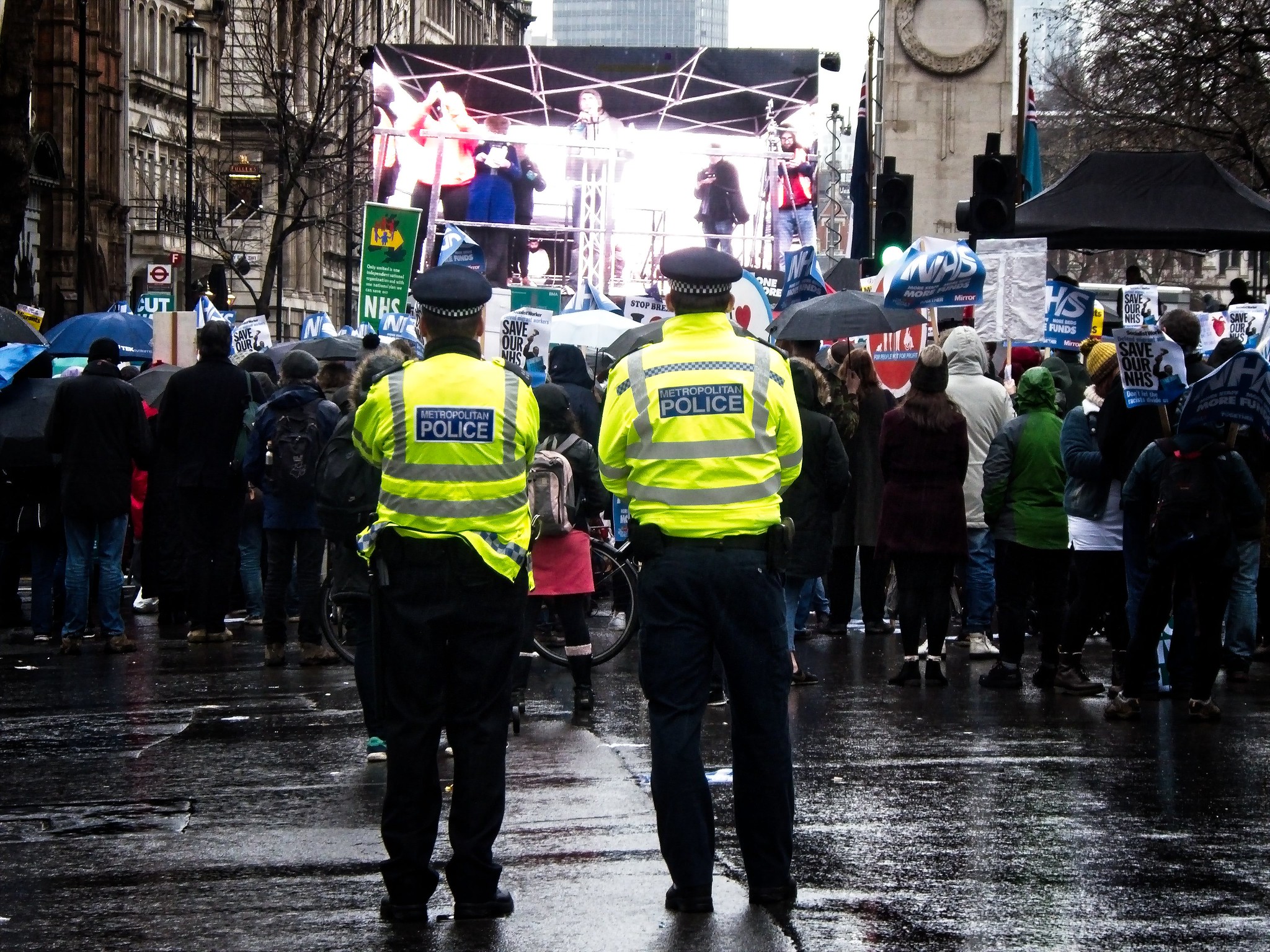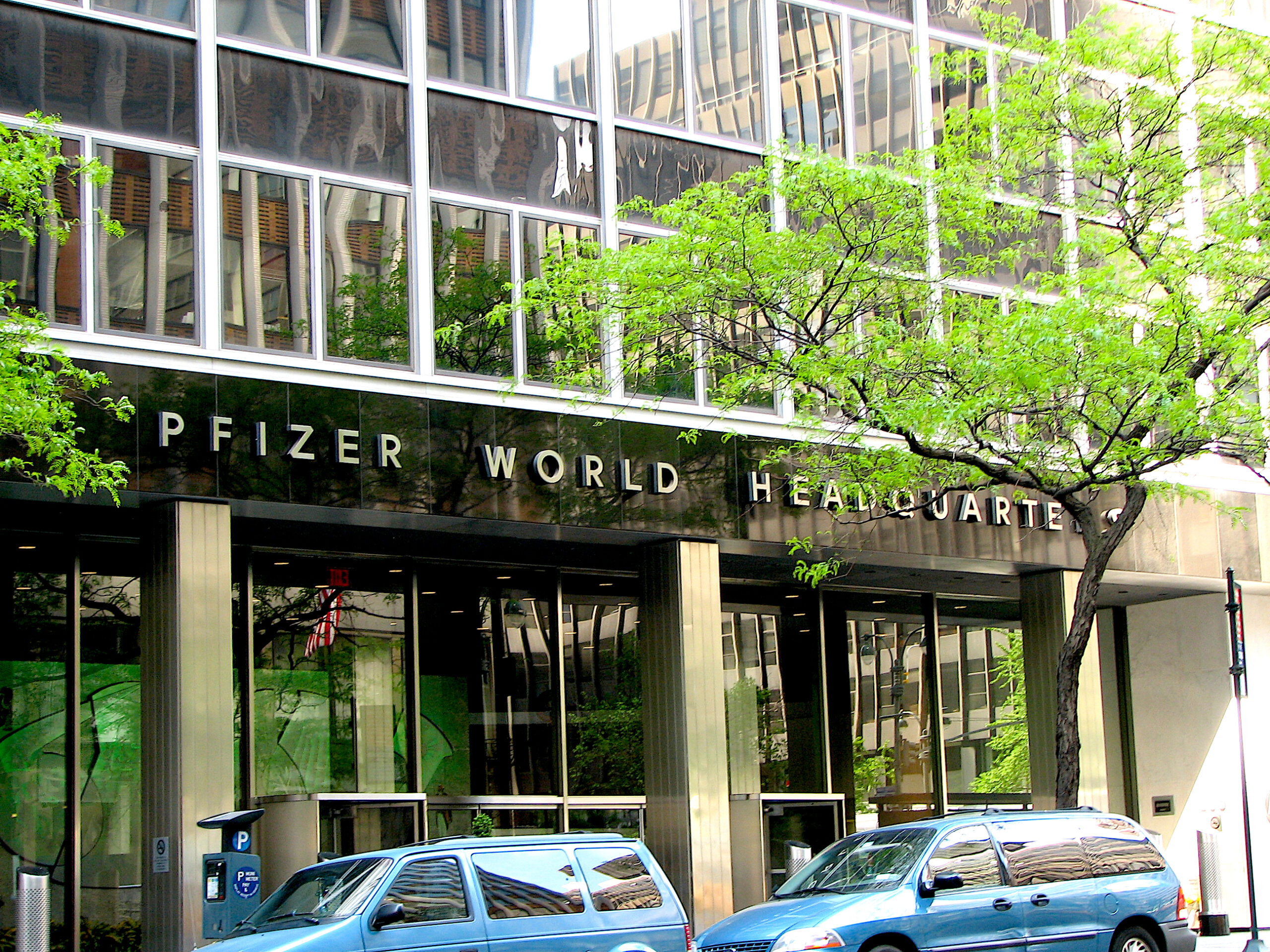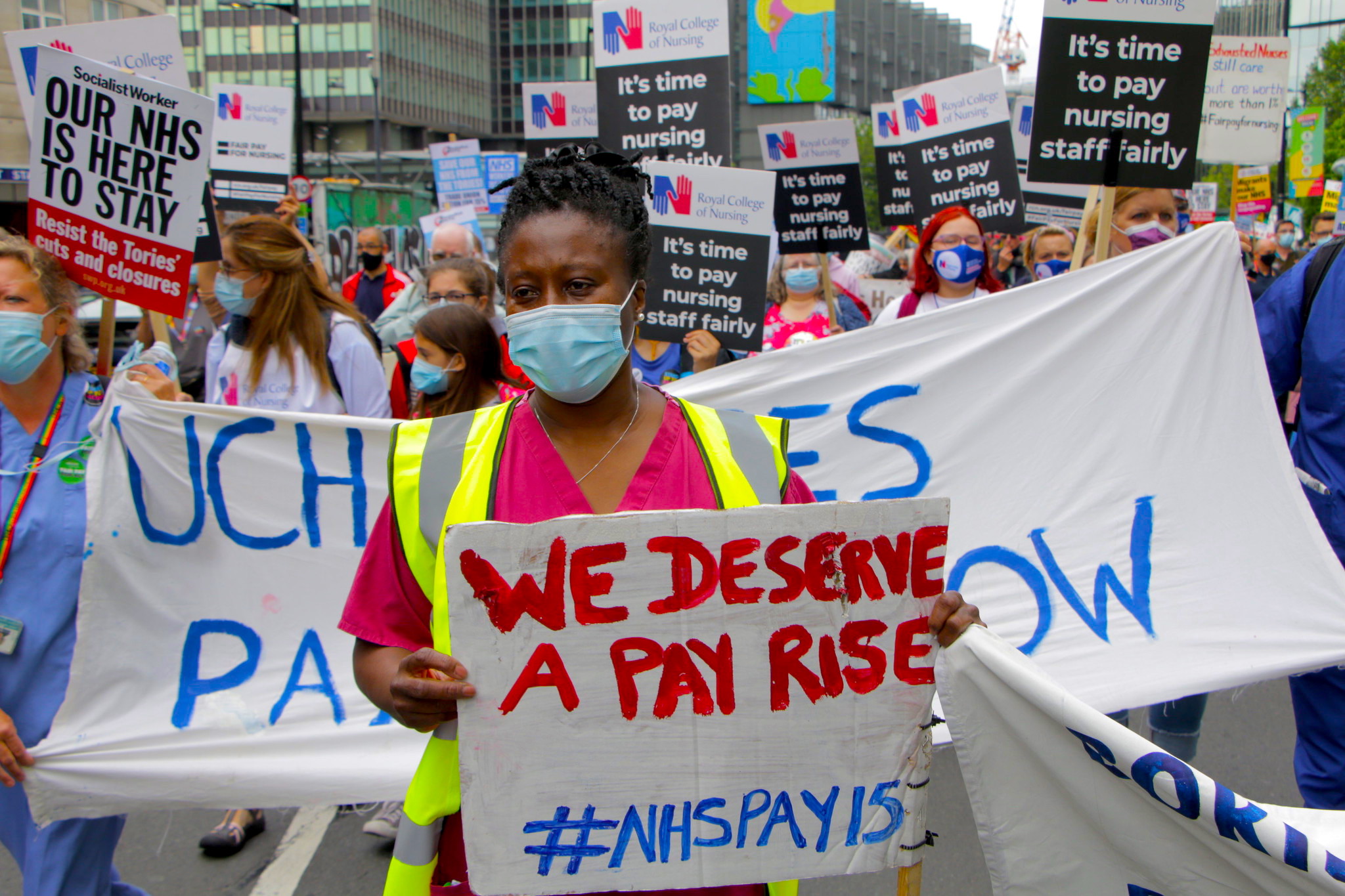What the nurses are up against when they go on strike should unite us all, writes Tarun Gidwani. Everywhere, the same corporations are hollowing out people’s ability to exercise their right to health.

#FundOurNHS march and rally in London, Feb. 3, 2018. (Garry Knight, Flickr, CC BY 2.0)
By Tarun Gidwani
openDemocracy
Imagine a disability almost disappearing if you flew out of the Global South. I have severe haemophilia, a genetic condition that interferes with the body’s ability to clot after bleeding. When left untreated, anything — even a bruise or merely sitting down — can trigger a bleed, internally or externally. Anti-clotting injections can stop this.
However, outside the advanced West, these injections are sold at exorbitantly high prices. When I was a child in India, my parents couldn’t afford such treatment, so they’d bury my bleeding joints under piles of ice to freeze them. Almost all the bleeds I experienced in India were left untreated, resulting in permanent damage to my joints and internal organs. In the U.K., the NHS home-delivers me these injections twice a month.
This global medical apartheid is created and perpetuated by pharmaceutical monopolies. Treatment pricing pursues a single sacrosanct goal: making profits. Trade laws allow corporations to keep most of their recipes secret, so that no one else can sell the same medicines at a cheaper price. Then the very same logic of capital menaces governments into withdrawing welfare nets — leaving families absolutely at the mercy of the market.
When a friend recently sent me news about a supposedly “miraculous” new treatment for haemophilia, I was pessimistic. The new intervention replaces the need to inject yourself every other day, which would be revolutionary to many lives. And trials to date have been very positive. But our current pricing and trade regime will inevitably ensure it is out of reach for those who most desperately need it — just as it did with the Covid-19 vaccines.
Profits Before Patients
Not all is quiet on the Western front, however. In its search for ever-greater profits, Big Pharma is strangling healthcare in richer countries too. The same monopoly pricing and trading mechanisms that keep those in the Global South from accessing care are eating up access in the Global North too.
Between 2011 and 2017, the cost of medicines for NHS England grew from £13bn to £17.4bn — a 5 percent rise every year. In 2020, this reached £20.9 billion. Yet the government is currently considering trade arrangements, leaked documents show, that will increase this cost even further by forcing the NHS to buy from pharmaceutical monopolies instead of buying generic medicines.
By contrast, the U.S. pharmaceutical giant Pfizer recorded profits of $21 billionn last year. That amount could fund the nurses’ wage demand twice over — while also bringing in more revenue, through tax and spending, than corporate profits do. That should put the nurses’ demands in perspective. It’s not striking health workers who are holding the NHS at gunpoint — it’s the corporate compulsion to squeeze and extract.

Pfizer’s world headquarters in New York City. (Norbert Nagel, CC BY-SA 3.0, Wikimedia Commons)
Ending the global medical apartheid necessitates ending pharmaceutical monopolies. Saving the NHS also necessitates this. These monopolies suck up public money for the development of drugs and then suck it up again by selling those same drugs back to the public at high prices.
Studies have shown that new drugs for rare diseases can be developed at costs up to £1.2 billion more cheaply than claimed by corporations. Organisations such as Global Justice Now have pointed this out repeatedly.
Take the development of abiraterone, for instance, which treats advanced prostate cancer. Its development was publicly funded, but once released to the market, the NHS was forced to ration it because it was exorbitantly expensive. Meanwhile, the corporation that sold it, Janssen, made £7.2 billion in sales.
The NHS spends billions buying treatments that were developed using public funding. In 2018, the U.K. spent around £500 million on cancer drugs that were developed through publicly funded institutions. Things have only gotten worse. Prices more than doubled for several drugs between July 2018 and October 2020.
A pack of 28 risperidone tablets, a commonly prescribed antipsychotic medicine used for treating mental health disorders, went from £2.68 to £49.21 — an increase of 1,736 percent. Drug prices in the U.K. are not subject to controls. They are negotiated behind closed doors.
Support CN’s
Winter Fund Drive!![]()
There’s so much hoo-ha about the fiscal consequences of nurses resisting pay cuts, but profiting by corporations isn’t deemed an issue. British Prime Minister Rishi Sunak claims that paying minimally decent wages to nurses is “obviously unaffordable,” while saying nothing about all the extra cash being handed to pharma companies that have a stranglehold on NHS spending.
Some battles are between forces larger than those visibly involved. The NHS strike against dramatic wage cuts (not for outrageous wage demands, as the government would have it) is one of them. The struggle of NHS workers can strike at the heart of the forces that profit from a segregated global health system.

Save our NHS – Fight for fair pay, July 2021, London. (Socialist Appeal, Flickr, CC BY 2.0)
This is a system that is only interested in making nauseating profits. Even if the pharmaceutical giants lost 20 percent of their profits, they’d still outperform 75 percent of other industries. They are also avoiding billions in taxes, according to a 2018 report by Oxfam — money that could otherwise expand the ever-shrinking pool of public-sector healthcare workers.
These profits, by the way, are by definition on top of what is spent on research and marketing. Taxing these profits will not only bring their profitability down to less nauseating levels. It’s the only way to curb treatment prices — and bring dignity to NHS workers. The bonanzas to corporations come at the cost of our health. And they come at the cost of decent wages for healthcare workers.
Big Pharma isn’t patriotic. These corporations don’t love the NHS. They may operate in the U.K. (and the U.S.), but they suck the life out of working people around them.
But working people in the Global North, especially workers in the NHS and in the pharmaceutical industry, hold legitimate power over Big Pharma because they foot the bill for its profiteering. They can demand price controls and transparency.
Therefore they play an important role in taming the beast that has come back West to stalk Frankenstein. The NHS strikes should be seen as a manifestation of this larger struggle.
There is a Himalayan distance between the healthcare that people receive in the Global South and in the Global North. I know — I have lived this distance first-hand. But we are united in being subjected to the same systemic forces. Everywhere, the same corporations are hollowing out people’s ability to exercise their right to health; a right that is foundational to the meaningful exercise of any other right.
What the nurses are up against when they go on strike should unite us all.
Tarun Gidwani is a research student in philosophy at King’s College London; specialising in the ethics of international trade. He is a part of the South Asia Solidarity Group in London and is engaged in political campaigns around climate justice, disability rights and healthcare.
This article is from openDemocracy.
The views expressed in this article and may or may not reflect those of Consortium News.
Support CN’s
Winter Fund Drive!![]()
Donate securely by credit card or check by clicking the red button:


It’s government’s that have allowed this situation to develop. Big Pharma will continue doing what it does whilst governments facilitate the corruption. Lobbying, revolving door and ‘contributions’ ensure there are no controls on big pharmas activities. These issues go much deeper than just window dressing control of profits.
In the UK, Margaret Thatcher put in motion the destruction and sell off of the NHS by decentralising the organisation and forcing internal completion. Tony Blair then delivered the coup de grace with excessive beurocracy and nurses degrees. The UK establishment hate the concept of the NHS and that includes the BMA. The NHS is doomed, the strikes are just symptoms of its inevitable demise.